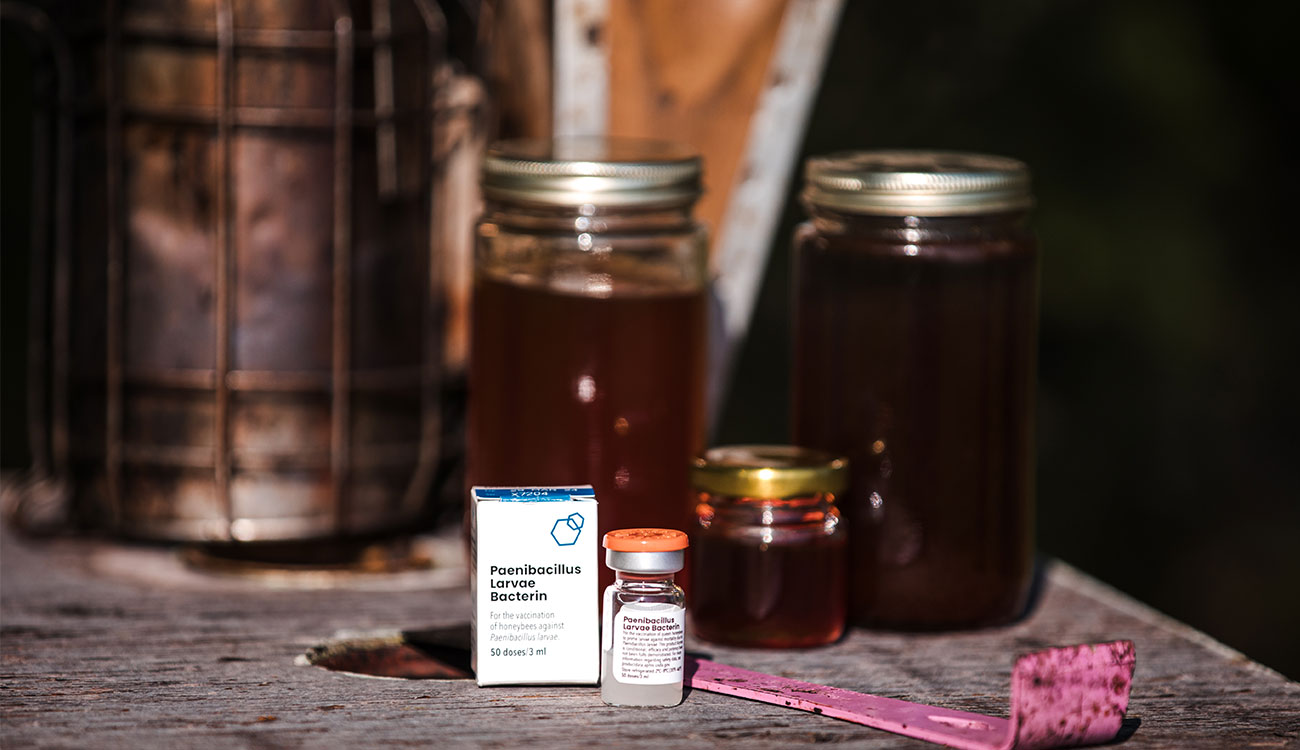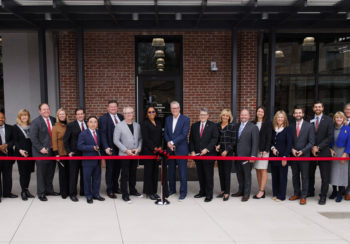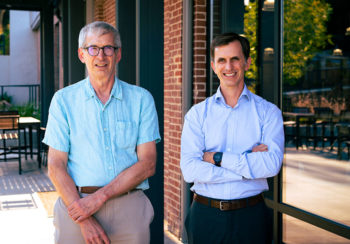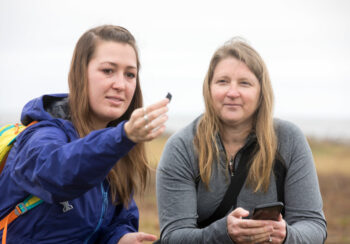In the fall of 2022, Annette Kleiser was looking for a new professional home.
Her company, Dalan Animal Health, was developing the world’s first honeybee vaccine and needed a top research university that offered excellent veterinary and agriculture schools, honeybee research and an established animal health ecosystem.
The University of Georgia was just what the doctor ordered.
In 2019, UGA created the Innovation District to support and catalyze its rapidly growing success in research commercialization and entrepreneurship. The Delta Innovation Hub, dedicated in 2021, serves many functions to help further these activities; the building acts as a venue for events and hosts numerous innovation and entrepreneurship programs.
The Hub, together with the Innovation Gateway startups team located within it, act as a wayfinding service for curious minds that don’t know their next step. The building is also the home to alumni and faculty-owned startups—as well as external companies, like Dalan, that are looking to relocate.
Kleiser moved Dalan’s headquarters to the Hub and teamed with researchers in the College of Agricultural and Environmental Sciences (CAES) and the College of Veterinary Medicine to further advance the world’s first vaccine for honeybees.
“I love it. It already feels like home,” said Kleiser, Dalan’s chief executive officer. “Athens is the ideal location to build an innovative biotech company that focuses on honeybee research. Our office on campus is adjacent to a lively downtown with great restaurants and bars. Athens is a foodie paradise.”
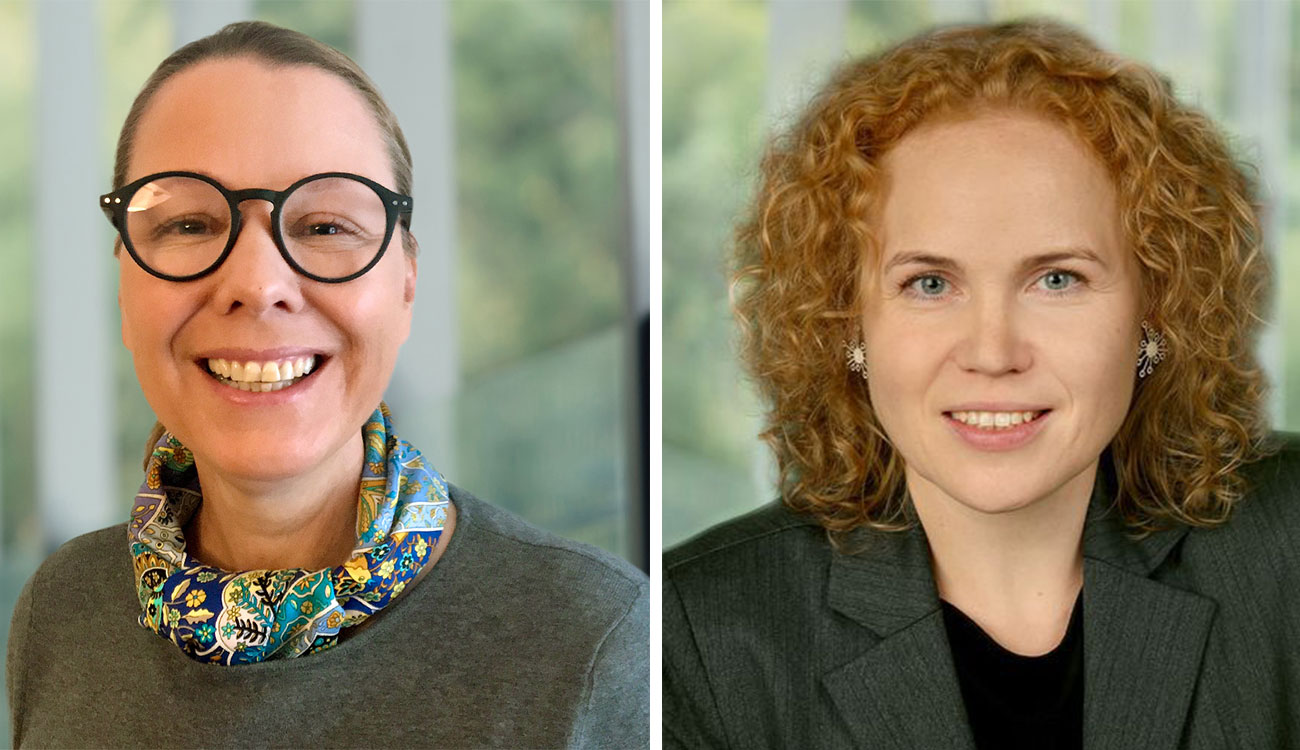
Professors Keith Delaplane in CAES and Joerg Mayer in the College of Veterinary Medicine have since both lent their labs, students and expertise to assist Dalan with vaccine trials, a collaboration that has begun to bear fruit for both parties.
“We have been working with Keith, director of the UGA Bee Program, for over a year now and it has been a great collaboration from the start,” Kleiser said. “He and his team have supported several of our studies.”
So has Mayer, whose team is planning several collaborative studies using his unique research beehives located at the Veterinary Hospital. Together, the group is solving a need while demonstrating the power of collaboration and entrepreneurship in UGA’s burgeoning Innovation District.
A pollinator paradise
It all started with the honeybees.
Agribusiness is Georgia’s leading industry, with an economic impact of over $74 billion every year. At UGA, CAES and the College of Veterinary Medicine help ensure the continued development of the state’s agriculture ecosystem, producing poultry vaccines, developing new plant cultivars and advancing technologies in infectious disease, among other types of related research.
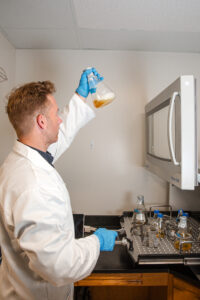
Honeybees are a vital part of this ecosystem. They add at least $15 billion a year to food supplies through increased yields and superior harvests due to pollination. In 2022, they also produced about $370 million in honey, according to the USDA-National Agricultural Statistics Service.
Recent declines in pollinators, especially honeybees, threaten these crops and food sources. The declines are due to environmental changes, pesticides and diseases like American Foulbrood, the deadly bacterial disease which Dalan’s vaccine was developed to prevent. The company was granted a conditional license in January by the USDA based on trial data so far and has started commercialization of the vaccine across several states in the US.
American Foulbrood is a bacterial disease that targets honeybee larva and spreads spores throughout the hive to infect more. Once infected, beekeepers often burn all parts of the hive and bury the ashes.
While UGA didn’t develop the vaccine, its partnership with Dalan has become critical to the company’s future success. From access to researchers and hives to guidance in commercialization, the university has proven its worth to its new resident.
“As a small startup, we rely a lot on partners and collaborators,” Kleiser said. “UGA definitely went the extra mile to help us get set up and facilitate our collaboration with its researchers.”
Providing a soft landing
Relocating a company’s headquarters is not easy. Aside from the significant costs, the amount of effort just to settle in a new environment can be overwhelming. There needs to be a compelling reason to move.
“Early in the process, when Dalan was looking around at different places, they weren’t sure how easily they could get started here,” said Ian Biggs, director of startups for Innovation Gateway and of programming for the Innovation District. “It’s quite difficult to think, well, how do I find somewhere to be based? How do I find ways of getting access to services in the university and the like? So, part of what we talked to Dalan about was how we could provide a soft landing.”
That’s where the Delta Innovation Hub came into play.
UGA’s rapidly growing Innovation District has driven entrepreneurship, innovation and commercialization since its inception in 2017. The startups program has grown substantially with nearly 200 companies now in the pipeline.
The Hub lives up to its name as a nexus of UGA’s innovation pipeline. Host to various programs, startups, events and classes, the facility is a key component the Innovation District, providing partner companies a front door to the university.

“Here is an office inside the Hub,” Biggs said, gesturing to one the building’s startup spaces. “It’s easy access to all of us on the team—an easy way to ask a lot of questions. How do I do this? How do I get this to happen? We provide an easy landing point with lab space, which Dalan needed, as well as access to other services.”
Those services include things like Mayer’s beehives, university support in managing sponsored projects, production capabilities like 3D printing, and even basic office supply needs.
“There were many things they needed quick access to early on, and we provided a seamless transition,” Biggs said.
Finding the worker bees
As important as the services at UGA were its people.
Lauren Wood is a third-year veterinary student on track to graduate as a Double Dawg—earning a bachelor’s and doctorate degree—in 2025. She also serves as Dalan’s outreach coordinator, and while she has a love for science, biology and helping living things, her original plan didn’t involve bees.
Originally, she planned to be a nurse. While attending the University of Alabama at Birmingham, however, she worked at the local zoo and fell in love. She changed her major and began looking for a new school with a great veterinary program.
That’s when she found UGA’s College of Veterinary Medicine.
“I had a couple of friends come here and I knew that I wanted to be as close to the vet school as possible,” Wood said. “I wanted to do my undergraduate degree here so that I could volunteer and kind of get to know the area too.”
At UGA, Wood was introduced to bees. She was accepted into the College of Veterinary Medicine and began working with Mayer’s beehives.
“I took one of (Mayer’s) elective classes and he briefly brought up Dalan. He said, ‘Hey, this (vaccine) is the coolest technology out there. You all should look at this,’” Wood said.
Dalan was already making waves in the veterinary world before its move to UGA. Mayer encouraged his students to investigate the company to learn about its cutting-edge technology.
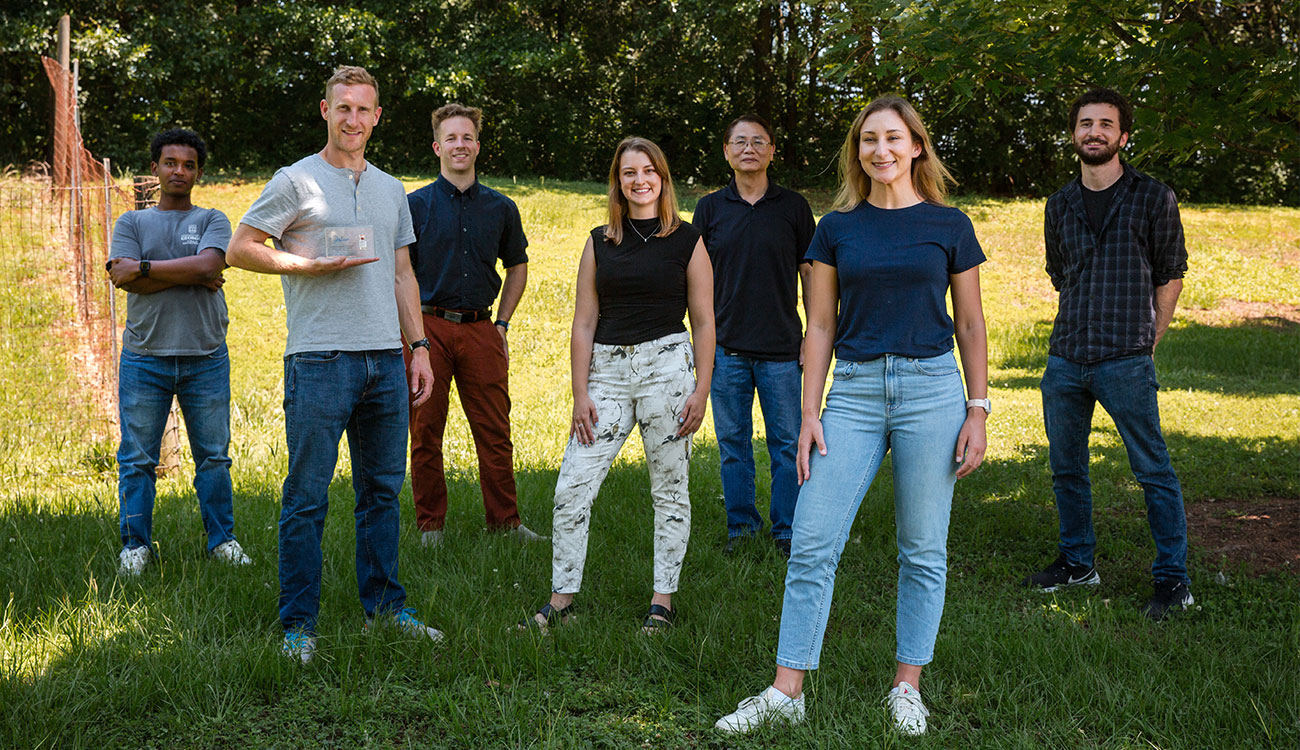
“I reached out to them,” Wood said. “I didn’t know if anything would happen, but I was just genuinely curious about this technology and about what their goals were.”
She connected and was immediately impressed. She remained in regular contact with a Dalan staff member, who would call about once a month to notify her of press releases or other new information.
Within a couple months, Wood was sitting with the two women who founded the company.
“I got to know them as women in STEM, entrepreneurs and innovators. It was inspiring and exciting to talk to them about their dreams and goals for Dalan,” Wood said. “And they were genuinely interested in me as a person and what I wanted to do.”
And, as luck would have it, Dalan was looking for a new home.
The company landed at UGA, and Wood landed a role with the company. It was another perk of being at the Delta Innovation Hub—access to good students.
“Our introduction to UGA’s vast network of students and alumni has given us a huge advantage in recruiting talent to work with us,” Kleiser said. “It’s safe to say that it didn’t take long for Dalan to become Bulldog fans.”



